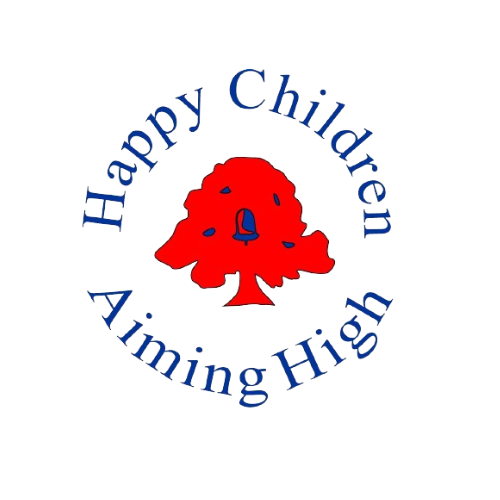Curriculum Design Philosophy
INTENT
At Palfrey Infant School we fulfil the statutory requirements of the National Curriculum 2014 and the Early Years Framework 2020 using engaging and challenging opportunities and experiences that are developed to match the individual needs of our learners.
We offer a curriculum that is ambitious and is designed to give all learners, particularly the most disadvantaged and those with special educational needs and/or disabilities or high needs, the knowledge and cultural capital to succeed in life. Our school motto, “Happy Children, Aiming High”, is a key driver in our curriculum offer. We aim for our pupils to succeed in their time with us and to have the knowledge, skills, aspirations and confidence to continue their learning journey in Key Stage 2 and beyond.
When developing our curriculum, we have researched current evidence of curriculum design and the role of cognitive science in the classroom, alongside considering the needs of all the pupils at Palfrey Infant School and the challenges and opportunities the backgrounds of our pupils’ present. Our pupils continue to learn best through a discrete subject led model curriculum so that key knowledge and skills in each subject are developed and embedded. In Summer 2023, we have reviewed our curriculum offer for all subjects and, over the following year, we will embed the new curriculum while ensuring it meets the specific needs of our children.
IMPLEMENTATION
Our curriculum is planned and progressive, so knowledge and skills are revisited and extended from Nursery through to Year 2. Research into cognitive science has been influential in informing our curriculum design review. Subject leaders have worked in curriculum teams to review their curriculum and build knowledge and skills maps which ensure coverage and make it clear how their curriculum builds from Nursery to Year 2 and beyond. Quality first teaching will be evident in all classrooms to ensure that all learners receive the right level of individual support to promote independence and facilitate their learning and progress across all curriculum areas
In EYFS, each area of learning and development is implemented through planned, purposeful play, and through a mix of adult-led and child-initiated activities. Staff respond to each child’s emerging needs and interests, guiding their development through warm, positive interaction. As children grow older, and as their development allows, the balance gradually shifts towards more adult-led activities to help children prepare for more formal learning, ready for year 1.
The curriculum in Key Stage 1 is covered through discrete subjects, giving weekly timetabled time to all core subjects. The subjects of History, Geography, Art and DT are taught through spaced learning and interleaving to increase the likelihood of key knowledge being embedded in long-term memory and to improve learning retention. Retrieval practice is a key component of our curriculum design and we will use regular retrieval practice in all subject areas to increase pupils’ memory strength – both in how easily key information can be recalled and how deeply the information is embedded.
The use of assessments, observations and pupil voice interviews will be key to supporting the curriculum and allowing teachers and subject leaders to monitor the implementation of their curriculum.
English is the most important requirement for any pupil to be able to fully access the curriculum that we deliver. Whether English is a child’s first language or not, our curriculum reflects the need to support children in their language development and acquisition of English through a strong focus on vocabulary and oracy in all subjects. This is done through immersion into the language, staff teaching through visual prompts, the use of dual coding displays and scaffolds (Widgit), and re-emphasis on basic language to ensure understanding is paramount. We also offer children in KS1 the opportunities to extend and enrich their vocabulary and understanding of language through performing arts session delivered by the Artis Foundation.
We use the Racing -To-English programme, the Walsall EAL Toolkit and dual coding, using scaffolds (Widgit), as a way to support new learners with no English. This is undertaken within the classroom lessons and as a separate intervention. Where possible new-to-English learners are supported through home language whilst settling into school. Pupils struggling with acquisition of English are then identified through SEND observations.
We support parents through parent workshops throughout the year, including phonics and reading workshops, family learning days, healthy eating and online safety.
All teaching staff are supported through regular CPD opportunities to enable them stay updated with the most current and relevant theories and research, and support them to master their role within the classroom. This is vital to allow staff to practice and embed theories and strategies that support them in implementing our curriculum effectively.
IMPACT
The impact of our curriculum will be measured by how well our children develop and retain knowledge and skills across the curriculum and, ultimately, how well they achieve. This is reflected in our consistently good results from national tests but also by the personal growth and progress made by each individual.
Knowledge and skills are constantly revisited to ensure a mastery approach and to ensure that pupils know more and remember more. Core subjects are regularly checked and tracked using Insight to ensure progress is evident and that the impact can be seen clearly in how each pupil has progressed from their individual starting point. Pupil voice discussions show how well the children have embedded key knowledge in each subject area and how they can use this knowledge to articulate and discuss their learning.
All practitioners have a clear understanding of the curriculum intent and implementation and have high aspirations of every child achieving it. If every child is happy and aiming high for the next chapter of their learning journey by the time they leave Palfrey Infant School, we will be confident that our curriculum has done its job.
